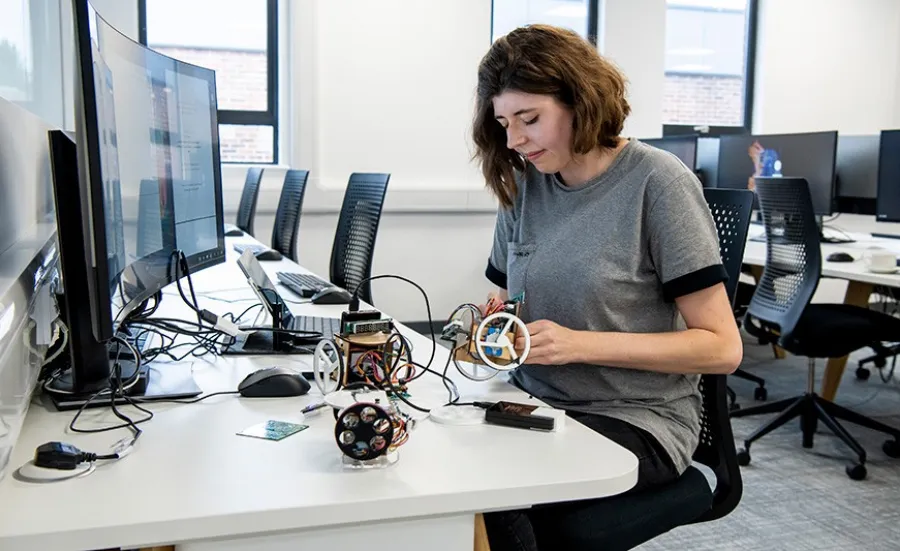Current research degree projects

Explore our current postgraduate research degree and PhD opportunities.

Explore our current postgraduate research degree and PhD opportunities.

The current increase in data generation is expected to reach unsustainable rates by the end of the decade. This has a strong impact on the environment and therefore new solutions are sought after. The project work is to build the most efficient components by developing the next generation of advanced materials to achieve sustainability in AI applications.
Revolutionising the semiconductor industry with next generation 2D materials and devices.Moore’s Law is currently being challenged with Nvidia CEO recently claiming it is over. The scaling of transistors cannot continue due to physical limitations of silicon posing a threat to the sustainable evolution of new technologies.
Would you like to work with state-of-the-art hardware and innovative software, using your skills to improve world-leading imaging techniques?microCT scanning is a key technology in non-destructive imaging across many applications. You will extend the capabilities of existing microCT scanners expanding their capabilities to improve scientific understanding.